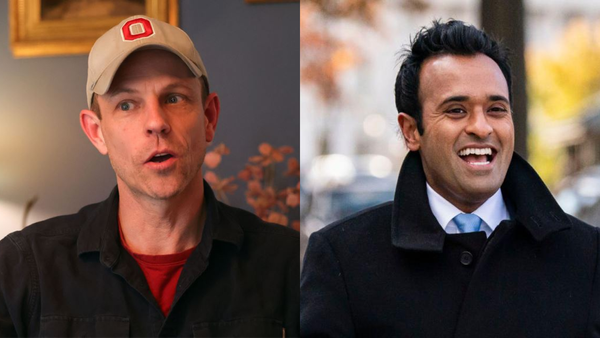In a summer that keeps churning out seismic events in college sports, ESPN’s decision to drop out of bidding for Big Ten television rights is another massive domino to tumble, albeit not entirely unexpectedly.
With Fox – which owns the Big Ten Network – acting as the conference’s agent in negotiations for its new television package, starting in 2024, it was always going to be an upstream swim for ESPN. An ask of $380 million over seven years for a limited package of games, according to the Sports Business Journal, which broke the news, was a bridge too far for Bristol.
With CBS picking up Big Ten’s 3:30 p.m. football game and other rights and NBC reportedly getting into the mix to obtain so-called shoulder programming to show before and after Notre Dame football games, both for about $350 million a year according to multiple reports, these are all worst-case scenarios for the ACC.
Those are huge numbers for secondary packages, together more than the ACC gets from the ESPN now for all of its rights, and before the Big Ten gets a dime from Fox. With the ACC locked into its own deal with ESPN through 2036, the revenue gap with the Big Ten is going to grow dramatically. That was inevitable, but it’s still shocking.
As for the ACC/Big Ten Challenge, that annual week-after-Thanksgiving milestone of the nonconference basketball schedule, a welcome oasis of interesting games at a time when ACC schools usually schedule their softest opponents, it probably only has two years left to run, leaving the ACC with an insurmountable lead. (You could justifiably argue it has run its course anyway.)
But there’s a way to look at ESPN’s estrangement with the Big Ten as being a potential boon for the ACC, good news at a time when the ACC desperately needs it – and, in the spirit of all politics being local, the NHL as well.
ESPN and ABC are not losing a ton of inventory – two to three football games and two to four men’s basketball games a week – but that is still a void that has to be filled. And while ESPN will add more SEC games at the same time its Big Ten deal expires, it still opens up more good national windows for the ACC in both sports and perhaps the NHL.
ACC commissioner Jim Phillips has said that ESPN, as a 50-50 partner in the ACC Network, is invested in the ACC’s success. The Big Ten’s newly impending departure creates an opportunity to prove that, whether that includes some new partnership with the Pac-12 or not.
Not to mention ESPN has a habit of freezing out sports where it does not hold the rights on its platforms, from First Take to Pardon the Interruption to SportsCenter to ESPN Radio — no small consideration given the way ESPN tends to set the terms of sports debate in this country. Just ask the NHL, which might as well not have existed from the moment it left ESPN in 2005 to the moment it returned in 2021.
It will be hard to ignore Ohio State-Michigan (and ESPN has not even, as Fox has owned that game) but Minnesota-Maryland may be a different story. There may be an opening there for the ACC to elevate its national profile, especially if ailing football powers like Miami and Florida State and Virginia Tech can recapture past glories and become interesting again for reasons other than the macabre.
The estrangement with the Big Ten also makes it a fait accompli that the next iteration of the College Football Playoff will not be another ESPN monopoly, which would have been the case if the 12-team proposal had been pushed through last summer. A more competitive bidding process with more partners means more money for everyone involved, including the ACC. With CBS and NBC both buying into the Big Ten, that opens the door for a 12-team playoff spread across four networks.
Envision: NBC would get Notre Dame’s games in the first two rounds if the Irish are around, the other networks would get one game in each round and Fox and ABC/ESPN each would get a semifinal and alternate the title game – basically, what the NFL does with its postseason. And if CBS or NBC wanted to buy their way into the last two weeks, that rising tide would lift a lot of boats.
As for the NHL, it still has to fight for attention on ESPN but this moves it up one notch on the pyramid by default. ESPN did a nice job with its first season back both in the regular season and the playoffs, and the competition with Turner seemed to push both sides to improve the product. There will be five years left on ESPN’s deal with the NHL when the Big Ten departs in 2023, plenty of time for that relationship to blossom and grow.
As always in college sports, these monumental sums of money can slosh around and create long chains of unintended consequences even the most alert cannot foresee. It may be too soon to say whether the Big Ten dropping ESPN is truly good or bad for the ACC, but it’s going to have an impact, one way or another.







